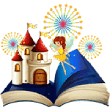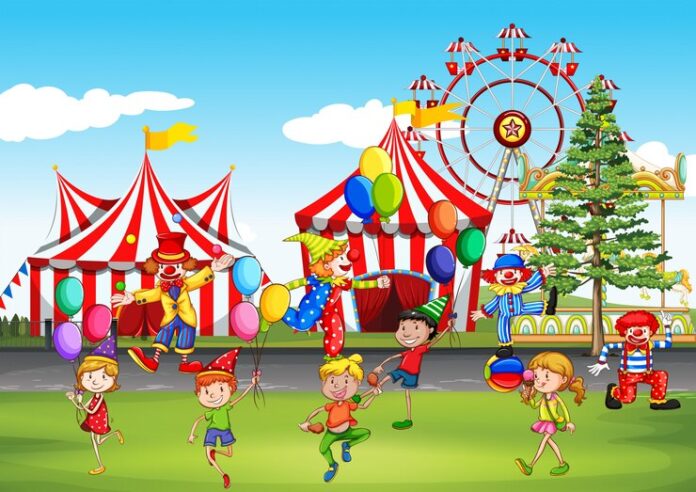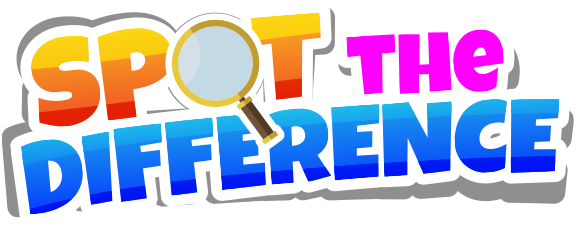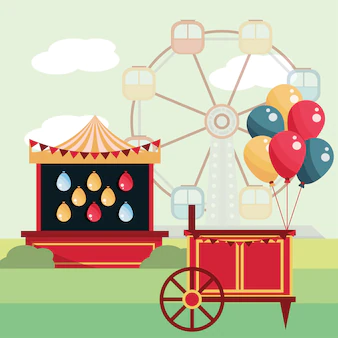Carnival shooting games have long been a staple of fairs and amusement parks, captivating children and adults alike with their vibrant colors, exciting challenges, and the thrill of competition. These games not only provide entertainment but also offer numerous developmental benefits for kids. In this article, we will explore the various aspects of carnival shooting games, how they engage children, and the educational opportunities they present. Additionally, we will discuss how platforms like EasyShiksha can help parents and educators incorporate these fun activities into learning experiences.
Educational Games for Kids
The Allure of Carnival Shooting Games
Carnival shooting games come in various forms, from classic BB gun shooting galleries to modern arcade-style games featuring laser tag or virtual reality. The common thread among these games is their ability to engage players through interactive challenges that require focus, precision, and hand-eye coordination. Here are some reasons why these games are so appealing to kids:
1. Excitement and Competition
The thrill of competition is a significant draw for children. Carnival shooting games often involve aiming at targets to win prizes, creating an exciting atmosphere that encourages kids to test their skills. The competitive nature of these games fosters a sense of achievement and motivates children to improve their performance.
2. Skill Development
Playing carnival shooting games helps children develop essential skills, including:
- Hand-Eye Coordination: Aiming and shooting at targets requires precise coordination between visual input and physical movement, enhancing this critical skill.
- Focus and Concentration: Successfully hitting targets demands concentration, teaching kids the importance of focus in achieving their goals.
- Fine Motor Skills: The act of aiming and shooting helps improve fine motor skills, which are essential for various everyday tasks.
3. Social Interaction
Carnival shooting games are often played in groups, promoting social interaction among children. Whether competing against friends or working together to achieve a common goal, these games encourage teamwork and communication, essential skills for social development.
4. Fun and Entertainment
At their core, carnival shooting games are designed to be fun. The colorful setups, engaging sounds, and the thrill of winning prizes create an enjoyable experience that keeps kids coming back for more. This enjoyment can lead to positive associations with learning and skill development.

Educational Opportunities Through Carnival Shooting Games
While carnival shooting games are primarily seen as entertainment, they can also serve as valuable educational tools. Here’s how parents and educators can leverage these games for learning:
1. Math Skills
Many carnival shooting games involve scoring systems that require basic math skills. Kids can practice addition and subtraction by keeping track of their scores or calculating the number of shots taken versus targets hit. This practical application of math helps reinforce concepts learned in the classroom.
2. Physics Concepts
Understanding the principles of motion, force, and trajectory can be integrated into carnival shooting games. Educators can use these games to explain concepts such as gravity, angles, and velocity, making learning more engaging and relatable.
3. Goal Setting and Achievement
Carnival shooting games encourage kids to set goals, whether it’s hitting a certain number of targets or achieving a high score. This experience can teach children about perseverance, determination, and the satisfaction of achieving their objectives.
4. Critical Thinking and Strategy
Many shooting games require players to develop strategies for hitting targets effectively. Kids can learn to analyze their performance, identify areas for improvement, and adapt their approach, fostering critical thinking skills.
Incorporating Carnival Shooting Games into Learning
Platforms like EasyShiksha can play a vital role in helping parents and educators incorporate carnival shooting games into learning experiences. Here are some methods for doing this:
1. Workshops and Events
EasyShiksha can organize workshops or events that combine carnival shooting games with educational activities. These events can focus on skill development, teamwork, and learning through play, providing a holistic experience for children.
2. Online Resources
EasyShiksha can offer online resources, including lesson plans and activity guides, that integrate carnival shooting games into various subjects. These resources can help educators create engaging lesson plans that capture students’ interest.
3. Parent Engagement
Parents can use EasyShiksha’s platform to find ideas for incorporating carnival shooting games into family activities. This engagement not only promotes learning but also strengthens family bonds through shared experiences.
4. Skill Development Programs
EasyShiksha can develop skill development programs that focus on the benefits of carnival shooting games. These programs can emphasize the importance of hand-eye coordination, focus, and teamwork, providing parents and educators with tools to support children’s growth.
What's New in Free Kids Learning?

Educational Games
Educational games are games explicitly designed for educational purposes with incidental or secondary educational value.
Click to Learn
Educational Video
Educational Videos increase student engagement in online classes, which helps boost their achievement.
Click to Learn
Worksheets
Worksheets are an essential part of a kid's learning process. It provides them to test their Learning and involve them in regularpractice.
Click to Learn
Questions
Kids cherish inquiring questions and their consistent 'Whys, How's, Who's are sufficient to drive indeed.
Click to Learn
Stories
Stories are the best way to develop a child's imagination by introducing new ideas into their world.
Click to Learn
Poems
Poems are perfect for young children to enhance their vocabulary and read skills. they may think poetry is incredible!
Click to LearnFAQs: Frequently Asked Questions
Q1: Are carnival shooting games safe for children?
A1: Yes, carnival shooting games can be safe if appropriate measures are taken, such as using soft projectiles or electronic targets. Always ensure the games are age-appropriate to promote kids’ learning in a safe environment.
Q2: What age group is suitable for carnival shooting games?
A2: Carnival shooting games are typically suitable for children aged 6 and older, depending on the game’s complexity and safety features. These games can significantly contribute to kids learning at this age.
Q3: How can I make shooting games more educational?
A3: Discuss strategies, set learning objectives, and incorporate math concepts like scoring and target values to enhance the educational aspect of the games, fostering kids’ learning through play.
Q4: Can shooting games help with academic performance?
A4: Yes, the skills developed through carnival shooting games, such as concentration, goal setting, and problem-solving, can positively impact academic performance and enhance kids’ learning.
Q5: Where can I find carnival shooting games for events?
A5: Many amusement parks, fairs, and local festivals offer carnival shooting games. You can also rent them for private events from party rental companies, making it easy to incorporate fun and learning for kids.
Related Article: Building Fun: Top Stack Builder Games to Boost Creativity in Kids
Get Courses: corporate finance course
Conclusion
Carnival shooting games offer a unique blend of fun, competition, and skill development that can engage children in meaningful ways. By leveraging these games for educational purposes, parents and educators can create enriching experiences that promote learning while keeping kids entertained. Platforms like EasyShiksha.com provide valuable resources and support to help integrate carnival shooting games into educational settings, ensuring that children can hit the target in both play and learning.
By understanding the potential of carnival shooting games, parents and educators can turn a fun day at the fair into an enriching learning experience that lasts well beyond the carnival grounds.












































































